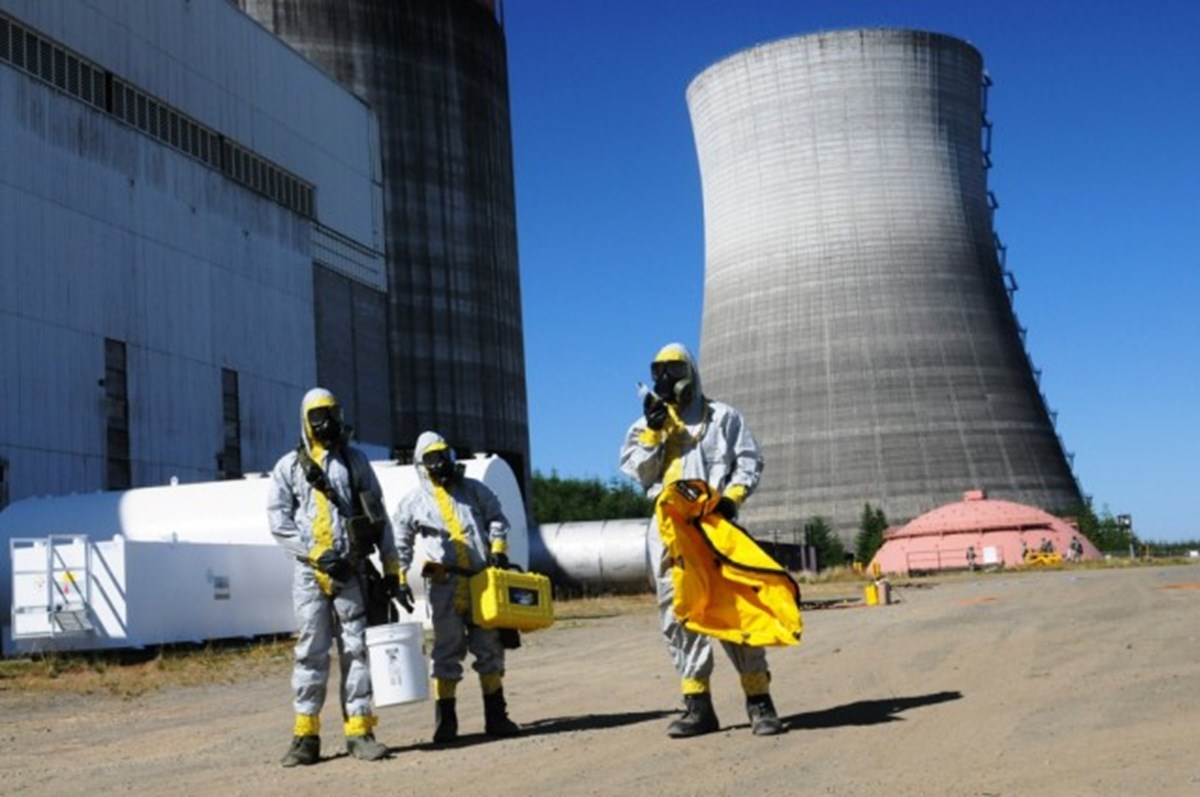My heart began to race as I walked into a congressional hearing room, 35 years ago, to testify about nuclear power. That morning, the hearing room was packed with members of Congress and a large audience. Television cameras were recording testimony from commissioners of the US Nuclear Regulatory Commission who favored a government act I opposed.
My anxiety was unfounded. In Congress, when you’re invited to be on a panel opposing a government program, few will want to hear what you have to say. Subsidies for nuclear power began long before the destructive “Green New Deal” dreams of democratic socialists were conceived.By late afternoon, when my panel was finally called, the room was virtually empty. Only a few congressmen remained to keep the committee in session.
The congressmen listened to my statement and that of another young economics professor, William C. Wood. Wood and I explained how the Price-Anderson Act distorted decision-making by limiting the liability of nuclear power plants. Few questions were asked before the hearing was adjourned.
A False Narrative
Some libertarians and conservatives promote a narrative that government regulation and unwarranted public fear are keeping us from safe, clean nuclear energy. Those with a free-market position quickly see and rightfully condemn the damages caused by subsidizing “green” energy, such as solar and wind power, yet they are unaware of or ignore government subsidies of nuclear power.
Subsidies for nuclear power began long before the destructive “Green New Deal” dreams of democratic socialists were conceived. By establishing the principle that the government should subsidize some forms of energy, subsidies for nuclear power helped pave the way for government to distort energy markets by subsidizing ethanol, electric cars, and solar and wind power.
The Price-Anderson Act
My Cato Institute monograph, The Price‐ Anderson Act: Is It Consistent with a Sound Energy Policy?, led to my Congressional invitation. In that monograph, I wrote:
There are many forms of government subsidization of the nuclear power industry. These subsidies include the sponsorship of research, enrichment of fuels, and disposal of nuclear wastes.
These subsidies do not necessarily establish the nonviability of the nuclear power industry, in that it is conceivable that these functions could be taken over by private industry. However, the one government-furnished privilege that the nuclear industry could find it hardest to live without is the Price-Anderson Act's limitation on a nuclear power plant's liability in case of an accident.
Under the Price-Anderson Act, operators of nuclear power are only required to carry the maximum amount of liability insurance available—currently $450 million.
In case of a catastrophic accident such as Fukushima, a government-mandated insurance poll will require each nuclear power plant to contribute $121,255,000 per reactor for a potential fund of over $12 billion.
Estimated damages from Fukushima range upwards over $600 billion. Such an accident in America would exhaust the insurance fund by a large margin.
In short, the government has introduced the same systemic risk into the nuclear power industry that we have seen in the financial sector. The industry gets the rewards; the rest of us absorb the risks.
Strict Liability
Famed libertarian law professor Richard Epstein has precisely diagnosed the risk problem. Writing in the Wall Street Journal about the 2010 BP Gulf of Mexico oil spill, he explained why
[t]he best way to deter future spills is to expose drillers to the full costs of any mistake and not let any company without proper insurance near an oil derrick.
Epstein was adamant:
The legal system should never allow self-interested parties to keep for themselves all the gains from dangerous activities that unilaterally impose losses on others—which is why the most devout defender of laissez-faire must insist, not just concede, that tough medicine is needed in these cases.
Epstein advised ending the liability limit on oil companies:
The first element in the mix is a no-nonsense liability system that fastens full responsibility on the parties who run dangerous operations, no excuses allowed. Accordingly, we have to be especially wary of statutory caps on tort damages, including the current law…
Epstein explains why insurance companies are the best regulators:
A tough liability system does more than provide compensation for serious harms after the fact. It also sorts out the wheat from the chaff—so that in this case companies with weak safety profiles don’t get within a mile of an oil derrick. Solid insurance underwriting is likely to do a better job in pricing risk than any program of direct government oversight. Only strong players, highly incentivized and fully bonded, need apply for a permit to operate.
And yes, Epstein applies his logic to the Price-Anderson Act:
This logic also suggests that the Price Anderson Act's $375 million cap on damages for each responsible party to cover incidents at a nuclear power facilities should be rethought.
In a free market, insurance companies play a front-line role in determining acceptable risk. The Price-Anderson Act allows special interest groups and self-proclaimed experts to override the impartial judgment of the capital and insurance markets.
The single best judge of the safety of nuclear power plants is the insurance industry. The unwillingness of the insurance industry to sell operators of nuclear power plants anything more than a small fraction of the insurance they would need in the event of a major accident forces us to question the safety of nuclear power plants. Absent adequate protection, the financial markets would not accept the risk of holding the stocks or bonds of a utility operating nuclear power plants.
Can Nuclear Power Evolve?
The nuclear industry is very much like the steel industry. The steel industry keeps asking for protective tariffs and each time assures us those tariffs are temporary. Similarly, advocates for the nuclear energy industry keep promising the protections of the Price-Anderson Act will, one day, not be necessary.
Their promises have been lies. The act, first passed in 1957, was renewed in 1966, 1975, 1987, 2002, and 2005. Renewing the Price-Anderson Act would continue to undermine accountability for nuclear power safety.Its current expiration date is 2025; no doubt it will be renewed again. Government subsidies, no matter how destructive, are virtually impossible to kill.
If the Price-Anderson Act is allowed to expire, the nuclear industry might develop new safety systems. When we testified in 1984, William Wood pointed the Congressional panel in that direction. He explained how the
fundamental safety problem of the nuclear industry…is the diffusion of the responsibility for safety and the knowledge of safety.
Wood explained why renewing the Price-Anderson Act would continue to undermine accountability for nuclear power safety:
If assets were at stake as they would be in the absence of artificial limit on liability, that would change. There would be a powerful motivation for those responsible for safety to tap into the knowledge about safety.
During our Congressional testimony, Wood said it best:
If we have an industry that cannot handle being liable for the consequences of its actions on third parties, then that is an industry we do not need.

